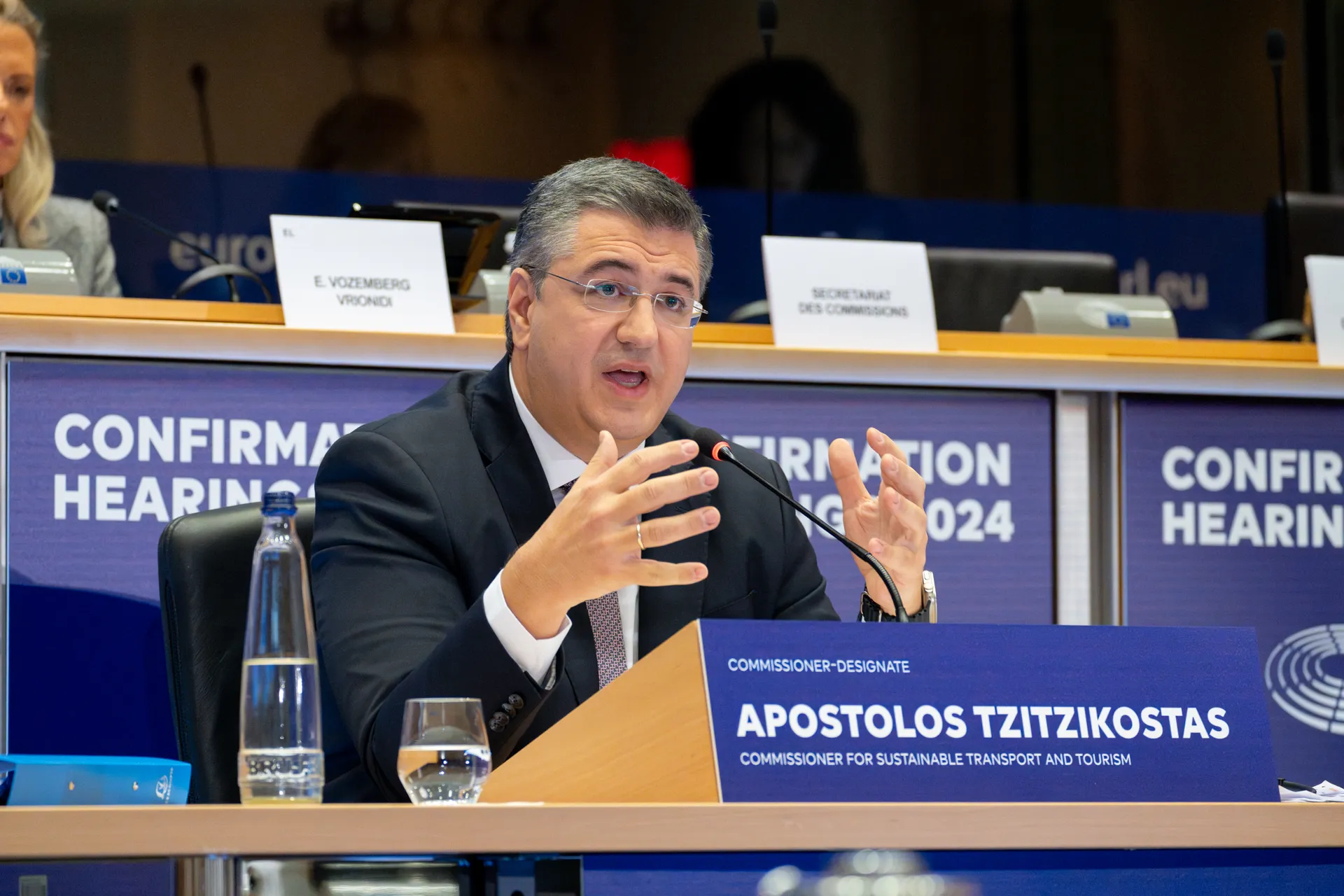Apostolos Tzitzikostas: The New Vision for EU Transport

The European Parliament approved the new European Commission on 27 November 2024, securing Ursula von der Leyen’s second term as President. Among the notable changes is the appointment of Apostolos Tzitzikostas as the EU’s new Transport Commissioner. At 46 years old, Tzitzikostas brings a blend of academic excellence, international experience, and a pragmatic vision to the role.
Who is Apostolos Tzitzikostas?
Tzitzikostas has an impressive academic and professional background. A graduate of Georgetown University in Political Science, Foreign Policy, and Diplomacy, he also holds a Master’s degree in European Public Administration and Economics from University College London. His career began in the United States, working for the Chairman of the Foreign Affairs Committee in Congress, before returning to Greece in 2001 to establish Macedonian Farm, an organic dairy products company. Since 2013, he has served as Governor of Central Macedonia, further solidifying his leadership credentials.
Key Priorities as Transport Commissioner
Tzitzikostas takes charge of the transport portfolio at a critical moment, with the EU pushing to meet ambitious climate goals and reshape its mobility systems. During his confirmation hearing, he outlined a clear roadmap for his term:
- TEN-T Implementation: Overseeing the development of the Trans-European Transport Network, a cornerstone of European connectivity and sustainability.
- Environmental Targets: Reaffirming the EU’s ban on internal combustion engine vehicles by 2035 and prioritizing support for manufacturers transitioning to electric mobility.
- Sustainable Freight Transport: Advocating for a modal shift from road to rail and inland waterways, to reduce emissions and increase efficiency.
Transforming Maritime and Port Infrastructure
One of Tzitzikostas’ early initiatives will focus on European ports. He announced plans to launch a comprehensive strategy to modernize port infrastructure and improve logistics operations across the maritime sector. This strategy is expected to:
- Enhance connectivity between ports and inland logistics hubs.
- Promote the use of sustainable fuels in maritime operations.
- Strengthen the resilience of supply chains in the face of global disruptions.
“The EU must lead in sustainable transport innovation, ensuring our logistics systems are both efficient and environmentally friendly,” Tzitzikostas stated during his hearing.
Investment in Sustainable Mobility
Tzitzikostas plans to introduce an investment plan in 2025 aimed at boosting sustainable transport across the EU. This initiative will focus on:
- Expanding electrification in urban and regional transport.
- Supporting the production and accessibility of sustainable fuels.
- Ensuring funding for projects that align with the EU’s Green Deal objectives.
These measures aim to secure Europe’s leadership in green mobility while addressing the challenges of transitioning to new technologies and infrastructures.
A Turning Point for the Supply Chain
For the logistics and supply chain sectors, these plans signal significant change. Freight transport is set to undergo a transformation, with rail and waterways taking precedence over traditional road transport. Electrification, sustainable fuels, and modernized infrastructure will redefine how goods move across Europe.
What Does This Mean for You?
As Tzitzikostas begins his term, the question remains: Will these ambitious plans drive meaningful change for the transport and logistics industry?
Stakeholders in the supply chain—hauliers, freight operators, and port managers—play a critical role in shaping this transformation. Do you expect these measures to address existing challenges, or will the pace of change lag behind the demands of the industry?


